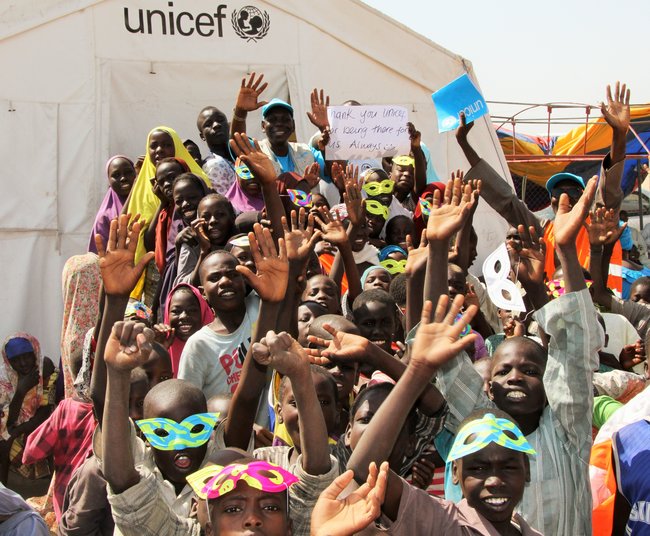By Ajuma Edwina Ameh
As COVID-19 lurches towards a second year, the United Nations Children’s Fund (UNICEF), has warned of significant and growing consequences on children’s education, nutrition and well-being.
The international organization who stated this in a new report released on Wednesday ahead of World Children’s Day, November 20, noted that while symptoms among infected children remain mild, infections are rising and the longer-term impact on the education, nutrition and well-being of an entire generation of children and young people can be life-altering.
According to UNICEF, the report “Averting a Lost COVID Generation”, is the first of its report to comprehensively outline the dire and growing consequences for children as the pandemic drags on.
“Since the pandemic started, there has been a false belief that children are not affected by COVID-19.
“Nothing can be further from the truth, including in Nigeria. While children are less likely to have severe symptoms of illness, they can be infected – and the biggest impact by far is the disruptions to key services and increasing poverty rates, which are both having a huge impact on Nigerian children’s education, health, nutrition and well-being. The future of an entire generation is at risk – globally and in Nigeria,” UNICEF Representative in Nigeria, Peter Hawkins, stated.
The new UNICEF report disclosed that while children can transmit the virus to each other and to older age groups, there is strong evidence that, with basic safety measures in place, the net benefits of keeping schools open outweigh the costs of closing them, the report notes.
New data from UNICEF surveys across 140 countries notes that, around one-third of the countries analyzed witnessed a drop of at least 10 per cent in coverage for health services such as routine vaccinations, outpatient care for childhood infectious diseases, and maternal health services, due to fear of infection.
In Nigeria, the drop was between 17 percent and 22.5 percent for select services, compared to figures from 2019 in the same period, and is variable across the country.
The data also showed a 40 per cent decline in the coverage of nutrition services for women and children across 135 countries, with an estimated decline of 35 percent in Nigeria.
More alarming data from the report further include, an estimated two million additional child deaths and 200,000 additional stillbirths could occur over a 12-month period with severe interruptions to services and rising malnutrition.
An additional six to seven million children under the age of five will suffer from wasting or acute malnutrition in 2020, a 14 per cent rise that will translate into more than 10,000 additional child deaths per month – mostly in sub-Saharan Africa and South Asia.
It further showed that globally, the number of children living in multidimensional poverty; without access to education, health, housing, nutrition, sanitation or water, is estimated to have soared by 15 per cent, or an additional 150 million children by mid-2020.
To respond to this crisis, UNICEF is calling on all governments and partners to ensure all children learn, guarantee access to nutrition, health services and make vaccines affordable and available to every child.
“World Children’s Day is an important day to commemorate but also recommit ourselves to addressing the rights and needs of children in Nigeria.
“We are asking the government, partners and the private sector to listen to children and young people about the Nigeria they want to see for themselves and their futures, and prioritize their needs.
“As we look ahead to a post-COVID-19 world, children must come first,” Hawkins said.
























Leave a comment